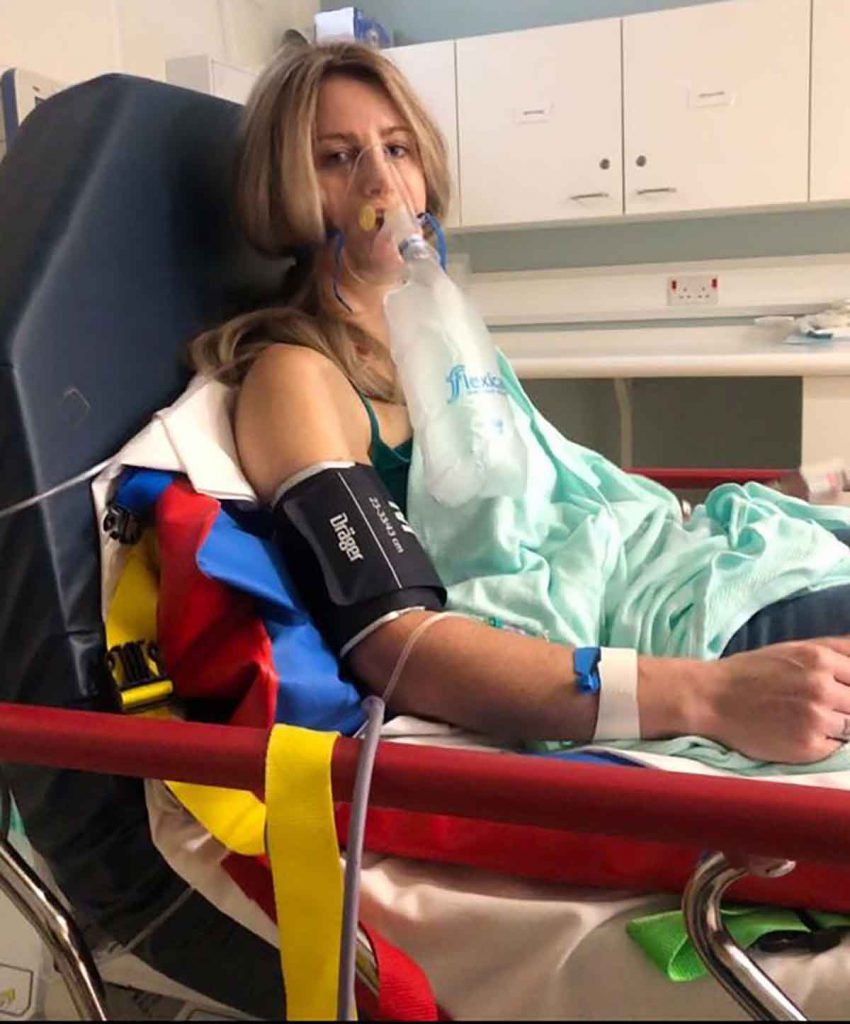While people with known allergies to food, drugs, and environmental substances must always remain vigilant to the dangers of anaphylaxis, life-threatening allergies can develop at any time. Just ask Sara Ashworth, a 39-year-old nurse from Norris Green, UK.
On July 7, Ms Ashworth was a patient at The Walton Centre for Neurology and Neurosurgery in Liverpool to receive four routine injections for migraines.
She picks up the story as told to the Liverpool Echo:
I went in for an outpatient procedure, so I was having injections in the back of my neck to try and do what is called a nerve block. There were four injections and after the third one I felt alright, a little uncomfortable and the doctor was absolutely lovely.
After the fourth one I just sort of had this rush right across my head, down my face and my neck and I just started not being able to breathe. I got this instant swelling in my throat.
The thing was my voice just instantly went, I couldn’t advocate or speak. So I was sort of just grabbing onto the doctor who ran to get help and then there was a young nurse who came in and she was trying to keep me calm.
She quickly lost consciousness, unable to breathe and fearing she would die.
I woke up and I had the cardiac arrest team and the pads on my chest. I just remember pulling on this young nurse because I just couldn’t breathe and the next thing you do is grab, don’t you, to anything.
I looked down and my arms were next to me and everyone was putting things into my arms and everything. But I really did feel like I was levitating, I don’t know if it was the drugs they gave me. The next thing was I just started shaking.
I think they gave me adrenaline [epinephrine] so they were stabbing me through my jeans because it was quicker to give me. I could hear them saying different things but it is all a blur.
I think they gave me three shots of adrenaline but it wasn’t working, so they needed to give me intravenous adrenaline when the anesthetist came. I think that saved my life.
Because The Walton Centre is not equipped with an emergency room, Ms Ashworth was moved to the resuscitation ward at Aintree Hospital where she subsequently recovered and was released.
I just thought I was going to die in a room full of people I don’t know but at the same time they were really willing me to live. It sounds so cheesy and cliché but at the same time I could see the emotion in their eyes when they were looking at me when I couldn’t speak and they were saying ‘stay with me’ and ‘we’ve got you’.

We at SnackSafely.com are thankful tragedy was averted and Sara Ashworth was saved by the quick actions of the medical team at Walton. Her glowing review of the NHS staff at the hospital can be read in the original source article.
Unaware she would react to the migraine medication, Ms Ashworth was lucky to be surrounded by a competent medical team that quickly diagnosed her emergency and administered the only drug known to halt the progression of anaphylaxis: epinephrine.
Others, especially those with known allergies, might not be so lucky. When time is of the essence, the sooner epinephrine is administered during anaphylaxis, the better the outcome.
That’s why individuals that have been prescribed epinephrine should always carry two auto-injectors with them at all times. Why two? In case the first dose is insufficient or has not been properly administered due to error or mechanical failure.
Never be caught without your lifeline should the unthinkable happen. Repeat our mantra: Take two epinephrine auto-injectors along everywhere… every time.
Epinephrine First, Period





